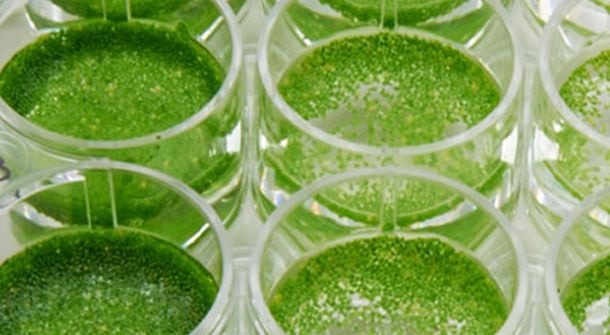Led by researchers from Ben-Gurion University of the Negev (BGU), the randomised controlled crossover trial identifies the protein-packed aquatic plant as having ‘significant potential as a 'superfood’ after research showed it may provide control over blood sugar levels after eating carbohydrates.
Writing in Diabetes Care, the team compared the impact of consuming a shake made with mankai duckweed or a normal yoghurt shake – both of which had the same carbohydrate, protein, lipid and calorie profile.
"Wolffia globosa Mankai duckweed may serve as an emerging alternative plant protein source with potential beneficial postprandial glycemic effects," wrote the authors - led by senior author Professor Iris Shai.
Duckweed potential
Mankai duckweed is an aquatic plant has previously been dubbed the “world’s smallest vegetable”. It is currently grown in Israel and several other countries using a closed hydroponic environment that allows year-round cultivation.
The aquatic plant is said to be highly environmentally sustainable - requiring a fraction of the amount of water to produce each gram of protein compared to other land-based plants like soy, kale or spinach.
Duckweed has been consumed for hundreds of years in Southeast Asia, where it is also known as ‘vegetable meatball’ due to its high-protein content, which is more than 45% of the dry matter. The plant has also been shown to contain a good protein balance, with the a similar amino acid profile to eggs – containing all nine essential and six conditional amino acids.
In addition, the team noted that the mankai strain is very rich in polyphenols such as phenolic acids and flavonoids (including catechins), dietary fibres, minerals like iron and zinc, vitamin A, vitamin B complex, and even vitamin B12 – which is rarely produced by plants.
Mankai benefits
The new trial is a sub-study of the larger Dietary Intervention Randomized Controlled Trial - Polyphenols Unprocessed (DIRECT PLUS) which explores the effects of green- Mediterranean diet.
In the study, researchers compared mankai shake consumption to a yogurt shake that was equivalent in carbohydrates, protein, lipids, and calories.
Following two weeks of monitoring with glucose sensors, participants who drank the duckweed shake showed a significantly better response in a a variety of health measures – including lower glucose peak levels; morning fasting glucose levels; later peak time; and faster glucose evacuation.
The participants also felt more full, said the team, noting that the satiety rank “was slightly higher for the Wolffia globosa shake compared with the yogurt shake.”
Source: Diabetes Care
Volume 42, Number 7, Pages 1162-1169, doi: 10.2337/dc18-2319
“The Effect of Wolffia globosa Mankai, a Green Aquatic Plant, on Postprandial Glycemic Response: A Randomized Crossover Controlled Trial”
Authors: Hila Zelicha, et al

